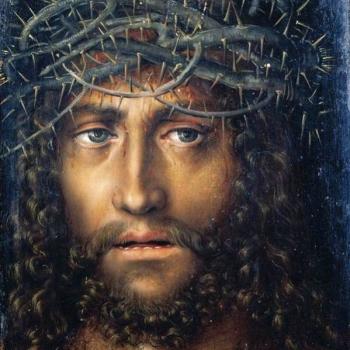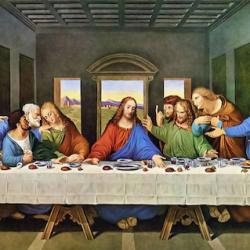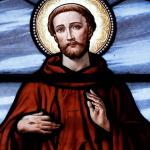“The Zealots”, Martin Hengelby larryhurtado |
Yesterday I was delighted to receive a gift-copy of the newly-released 3rd edition of Martin Hengel’s landmark book, Die Zeloten (Tuebingen: Mohr Siebeck, 2011), with a touching note from his widow, Frau Hengel. The full title translated = The Zealots: Studies on the Jewish Freedom Movement from the time of Herod I to 70 CE. In its initial form, it was Hengel’s doctoral thesis (accepted 1959, Tuebingen), and immediately after its publication (1961) it put him on the map as a noteworthy scholar of ancient Judaism. (An English translation of the 2nd German edition of 1976 appeared in 1989, by T&T Clark.)
The book has been compared in importance and lasting significance with Emil Shurer’s classic work, and that’s no exaggeration. To my knowledge, it remains the fullest study of Jewish anti-Roman resistance. As with all of Hengel’s works that followed, it combines (with amazing aptitude) an impressive breadth of scope, clear central vision/thesis, and near-encyclopedic coverage of primary data and scholarly investigation.
Because Hengel’s next big work, Judentum und Hellenismus (German original 1968) appeared in English earlier (Judaism and Hellenism: Studies in their Encounter in Palestine during the Early Hellenistic Period, 2 vols. London: SCM Press,1974), among English-speaking scholarship it probably made his name. I take nothing at all from this work, which is obviously related to Die Zeloten, and confirmed that Hengel was not a “one trick pony”, but I simply wish to highlight the latter work here.
Hengel’s core thesis in Die Zeloten was that the several successive Jewish resistance movements against Rome were historically linked, and were heavily motivated by religious belief and traditions. He set out his stall clearly, and drew (as only a well set out thesis can) predictable (and entirely appropriate) critical responses from some other scholars. But, although some have emphasized socio-economic concerns and have questioned how connected the various resistance efforts were, it’s fair to say that Hengel’s work hasn’t been overturned.
This 3rd (German) edition was edited by one of Hengel’s last doctoral students, Roland Deines (Nottingham Univ) Claus-Juergen Thornton (Director of publication in world-religion, Insel Verlag), and they provide a brief Foreword about changes that Hengel made to the successive editions, in response to criticisms from other scholars. One of those mentioned is illustrative of Hengel’s character as scholar and as person.
In the initial edition, he used the term then-common in German scholarship (at least among German scholars of Christian background) to refer to Jewish religion of the second-temple period: “Spaetjuedentum. Literally, “late Judaism,” but it always carried a pejorative whiff, subtly implying something defective, alloyed, distinguished from the “purer” religions of “ancient Israel”. Among scholarly reviewers, some took justifiable exception to the continued use of “late Judiasm”, and too his credit in the 2nd edition (1976) shifted to referring to German expressions meaning “early Jewish writings” and “ancient Judaism”. Indeed, from 1970 he also changed the name of the monograph series that he had oversaw to “Arbeiten zur Geschichte des antiken Judentums und des Urchristentums” (= “Studies on the History of Ancient Judaism and Early Christianity”). (Unfortunately, and curiously, in the 1989 English edition, “late Judaism” was retained.)
In this and a number of other actions, most of all in the thorough and competent handling of ancient Jewish texts, people and their beliefs, Hengel widely earned the respect of Jewish scholars. A candid Christian (of traditional Protestant stance), he also showed a sincere respect for colleagues of other faiths, and a readiness to take to heart valid criticism from whatever quarter (but it had better be well based!).
This 3rd edition has numerous updatings and improvements, many from Hengel’s own notations that he intended to introduce. It also includes a valuable analysis of scholarly discussion over the last 50 years of Hengel’s core thesis that there was a (connected) Jewish freedom movement, written by Roland Deines (pp. 402-48).
It will likely be too expensive for many individual purchases, but it really ought to be in every research library addressing ancient Judaism.















